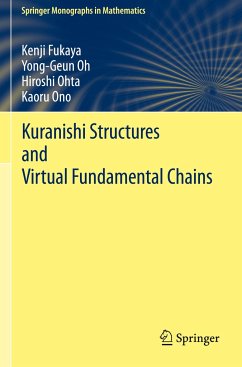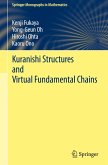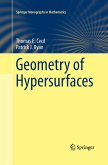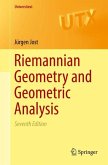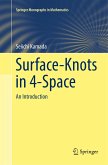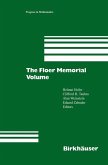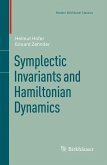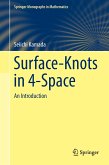The package of Gromov's pseudo-holomorphic curves is a major tool in global symplectic geometry and its applications, including mirror symmetry and Hamiltonian dynamics. The Kuranishi structure was introduced by two of the authors of the present volume in the mid-1990s to apply this machinery on general symplectic manifolds without assuming any specific restrictions. It was further amplified by this book's authors in their monograph Lagrangian Intersection Floer Theory and in many other publications of theirs and others. Answering popular demand, the authors now present the current book, in which they provide a detailed, self-contained explanation of the theory of Kuranishi structures.
Part I discusses the theory on a single space equipped with Kuranishi structure, called a K-space, and its relevant basic package. First, the definition of a K-space and maps to the standard manifold are provided. Definitions are given for fiber products, differentialforms, partitions of unity, and the notion of CF-perturbations on the K-space. Then, using CF-perturbations, the authors define the integration on K-space and the push-forward of differential forms, and generalize Stokes' formula and Fubini's theorem in this framework. Also, "virtual fundamental class" is defined, and its cobordism invariance is proved.
Part II discusses the (compatible) system of K-spaces and the process of going from "geometry" to "homological algebra". Thorough explanations of the extension of given perturbations on the boundary to the interior are presented. Also explained is the process of taking the "homotopy limit" needed to handle a system of infinitely many moduli spaces. Having in mind the future application of these chain level constructions beyond those already known, an axiomatic approach is taken by listing the properties of the system of the relevant moduli spaces and then a self-contained account of the construction of the associated algebraic structures is given. This axiomatic approach makes the exposition contained here independent of previously published construction of relevant structures.
Part I discusses the theory on a single space equipped with Kuranishi structure, called a K-space, and its relevant basic package. First, the definition of a K-space and maps to the standard manifold are provided. Definitions are given for fiber products, differentialforms, partitions of unity, and the notion of CF-perturbations on the K-space. Then, using CF-perturbations, the authors define the integration on K-space and the push-forward of differential forms, and generalize Stokes' formula and Fubini's theorem in this framework. Also, "virtual fundamental class" is defined, and its cobordism invariance is proved.
Part II discusses the (compatible) system of K-spaces and the process of going from "geometry" to "homological algebra". Thorough explanations of the extension of given perturbations on the boundary to the interior are presented. Also explained is the process of taking the "homotopy limit" needed to handle a system of infinitely many moduli spaces. Having in mind the future application of these chain level constructions beyond those already known, an axiomatic approach is taken by listing the properties of the system of the relevant moduli spaces and then a self-contained account of the construction of the associated algebraic structures is given. This axiomatic approach makes the exposition contained here independent of previously published construction of relevant structures.
"Although the authors have dealt with this subject in some previous monographs and in numerous articles, it seemed necessary to have a book that could collect all the necessary and well-organized material. This is the reason why the two above-mentioned authors, together with Yong-Geun Oh and Hiroshi Ono, have decided to write this book that we review now. ... this book (an authentic tour de force) it is an indispensable reference for every researcher in symplectic geometry and topology." (Manuel de León, zbMATH 1482.53002, 2022)

